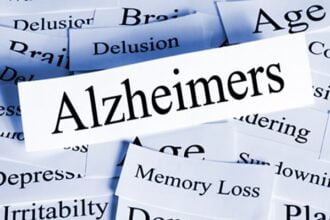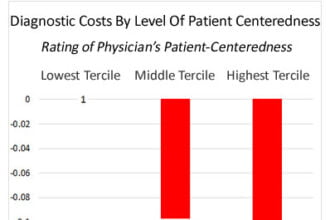Science magazine of September 13, 2013 had alarming news: a new blood test for the diagnosis of Autism Spectrum Disorder (ASD) is being developed by Pediatric Bioscience, a start-up biotech. According to a press release, quoted by Science, ”a positive result on the test, estimated to cost roughly $800 and be ready in about 18 months, could tell a woman that she has a “99 percent likelihood” of having a child with autism if she became pregnant.
Science magazine of September 13, 2013 had alarming news: a new blood test for the diagnosis of Autism Spectrum Disorder (ASD) is being developed by Pediatric Bioscience, a start-up biotech. According to a press release, quoted by Science, ”a positive result on the test, estimated to cost roughly $800 and be ready in about 18 months, could tell a woman that she has a “99 percent likelihood” of having a child with autism if she became pregnant. It could also tell parents if the child they just had is likely to develop autism, especially if there are already signs of a developmental delay. Such a scenario, says company President Jan D’Alvise, would let parents enroll a child in early interventional therapies, even before symptoms develop.”

What is the scientific basis for the test?
Judy van de Waters, of the MIND institute at UC Davis, is pursuing the hypothesis that at least some of ASD is immunologically caused. Van de Water’s latest work, published in the journal Translational Psychiatry, examined 246 mothers of children with autism. She and her colleagues found that 23% carried antibodies that react to fetal brain tissue, compared with only 1% of 149 mothers who have typically developing children. Van de Waters and her team pinpointed seven specific proteins that the antibodies target, including ones linked to the proliferation of neurons, neural migration during development, and neural branching. Sounds plausible enough, except that the numbers of serums tested is woefully too small to draw any conclusion. Let alone the fact that cause and effect relationship has not been established. Could it be that the antibodies are the result of some dysfunction in fetal brain development?
But I am giving too much credit to the claim of 23% positive sera.
Because the serum of the tested mothers displayed varying patterns of reactivity to the seven fetal brain proteins—some binding to just one and others to up to five—the researchers added up many different “specific combinations” of reactivity to get their figure of 23%. No specific pattern of reactivity was observed in more than 7% of the mothers of autistic children that they tested, notes Steven Goodman, a biostatistician at Stanford University in Palo Alto. He described the approach as a form of data dredging—sifting data for the largest effects—which at best exaggerates predictiveness, and at worst finds patterns that aren’t real.
The Sociology of Bad Science
Some of our best research institutes, such as the Whitehead at MIT, are privately endowed. But some have a more questionable pedigree. You probably don’t remember Judy Mikovits, but maybe this clue will jog your memory: Chronic Fatigue Syndrome (CFS). Dr. Mikovits and her group at the Wittemore-Peterson Institute for Neuroimmune Disease (WPI), University of Nevada, published papers purporting to show that antibodies to a mouse-related virus (XMRV) is associated with and may cause chronic fatigue syndrome (CFS) and a variety of additional diseases. The WPI was founded by a wealthy businessman, Harvey Wittemore and his wife Annette whose daughter suffered from CFS. Former business partners of Harvey Whittemore filed a civil suit against him and his wife Annette in Nevada court on 27 January 2012, alleging that the couple inappropriately used the resources of a holding company Harvey co-owned, Wingfield Nevada Group, to support a scientific research institute they founded as well as many personal expenses.
A report by WPI scientists of an association between CFS and XMRV was retracted by the journal Science when the results could not be replicated, and it was discovered that XMRV was a laboratory contaminant.
Here is a seemingly unrelated episode of bad science. In 1998, the British physician Andrew Wakefield claimed that eight of 12 children with neurodevelopmental delays had experienced a sudden onset of autism symptoms after receiving the measles, mumps, and rubella (MMR) vaccine. In a press conference held in coordination with the publication of a study in The Lancet, he hypothesized that the triple dose of vaccines could trigger an immune reaction that damages the brain. The study was later retracted, Wakefield was stripped of his medical license for falsifying the medical histories of the children, and more than a dozen epidemiological studies have failed to find any connection between childhood vaccines and autism. but old myths don’t die-they don’t even fade away- they just reinvent themselves.
Judy van Waters works at the MIND Institute, which was founded in 1998 by influential California families who had a “big interest” in the MMR hypothesis of Wakefield. But once his research was exposed as fraudulent, the MIND institute did a quick two-step and shifted its focus from vaccines to other neuro-immune mechanisms.
Whether or not the antibodies-to-brain-proteins hypothesis pans out, the rush to create a test for such antibodies is alarming. What is a pregnant mother to do if she tests positive? Abort the fetus? Live with anxiety for months after giving birth, looking for telltale signs of autism?
There is a disturbing link between Judy Mikovits of the WPI and Judy van de Waters of the MIND institute. Both researchers work for institutes that were founded by wealthy families whose children suffered from a disease for which there is no known cause or cure. These are people who, however well intentioned, approached the research they were endowing with pre-conceived expectations: WPI to find the virus that causes CFS, MIND to prove a neuro-immunological cause for autism spectrum syndrome. The investigators in such places are under tremendous pressure to deliver, especially when the families/ founders have a personal stake in the outcome. and this can lead to all kinds of mischief.
The virus hypothesis of CFS didn’t die until huge clinical trials, at large public expense, debunked it. In the meantime, energy and money was diverted from legitimate lines of research into the causes of the syndrome. Likewise, Wakefield’s MMR vaccine hypothesis scared thousands of parents from vaccinating their children against devastating diseases, with the predictable consequence of resurgence of measles, mumps and rubella-diseases that were considered extinct in the industrial countries.
Will the new autism blood test wreak similar havoc?
(Another false autism breakthrough? / shutterstock)








